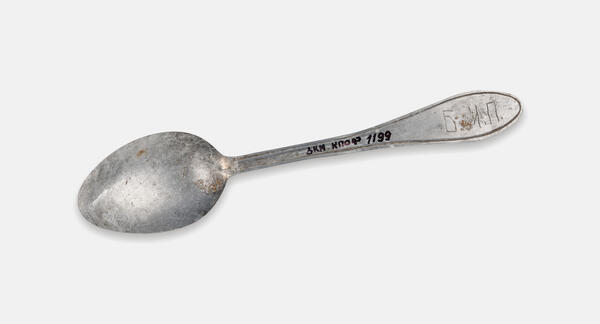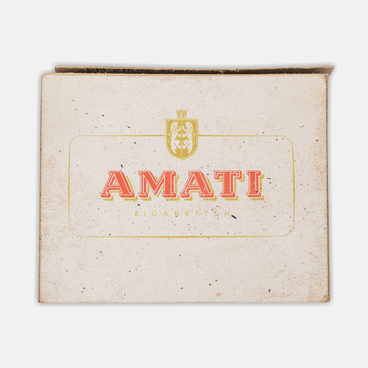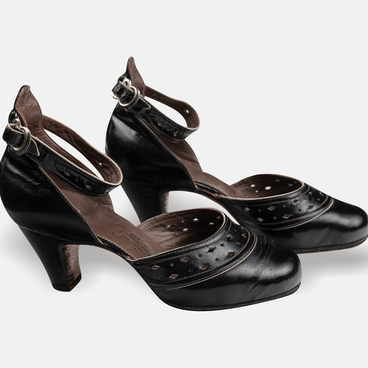The exhibition of the Zelenogradsk Museum of Local Lore presents an army tablespoon with the inscription “Raya!” and a five-pointed star. Soldiers’ belongings are important witnesses of the harsh times of the Great Patriotic War. The spoon was found by the “Sovest” (Conscience) detachment during search operations in the Zelenogradsk District. Together with the local administration, the search team implements the “Historical Memory” project that has saved the names of dozens of dead Soviet soldiers from vanishing into oblivion.
During the Great Patriotic War, taking care of one’s belongings was an important part of a soldier’s life. Every soldier depended on the operation of a rifle or a submachine gun, while an overcoat or a trench coat was their only home during long campaigns. Three items of equipment were especially important for front-line soldiers: a shovel, a spoon, and a canteen. These were not merely everyday objects — these were the things that helped soldiers bear the difficulties of the war years.
Soldiers’ spoons were characterized by great variety. The standard army spoon was made of aluminum, but other materials could also be used, such as wood and metal, including materials from downed enemy planes. Many conscripts brought cutlery from home. In this case, the spoon served as a kind of talisman, which was supposed to attract the end of the war and help the soldier return home. In order to give the utensils individuality and not to mix them up, some soldiers engraved their spoons, scratched various inscriptions, or stamped them using a needle. Often the inscription on the spoon did not indicate the soldier’s name but rather included the names dear to their heart, such as the ones of their girlfriend, son, mother, or hometown.
Unlike the Wehrmacht and Allied armies, the
Workers’ and Peasants’ Red Army did not use traditional metal tags. Instead,
Soviet soldiers carried plastic capsules, with two copies of a special blank
with personal and combat information inserted inside. Some soldiers were
superstitious and believed that filling in the “funeral blank” could attract
bad luck and lead to death in the next battle. This is why they often stamped
their names on spoons and canteens. Names of hundreds of missing soldiers were
discovered thanks to inscriptions on spoons.



